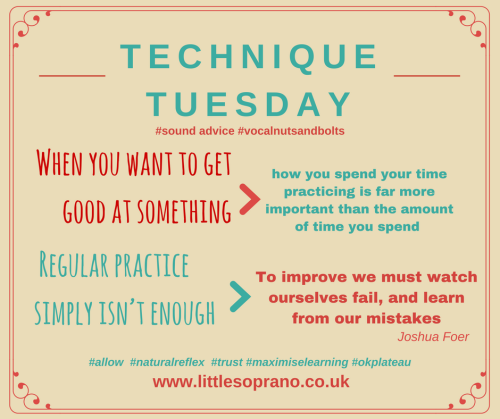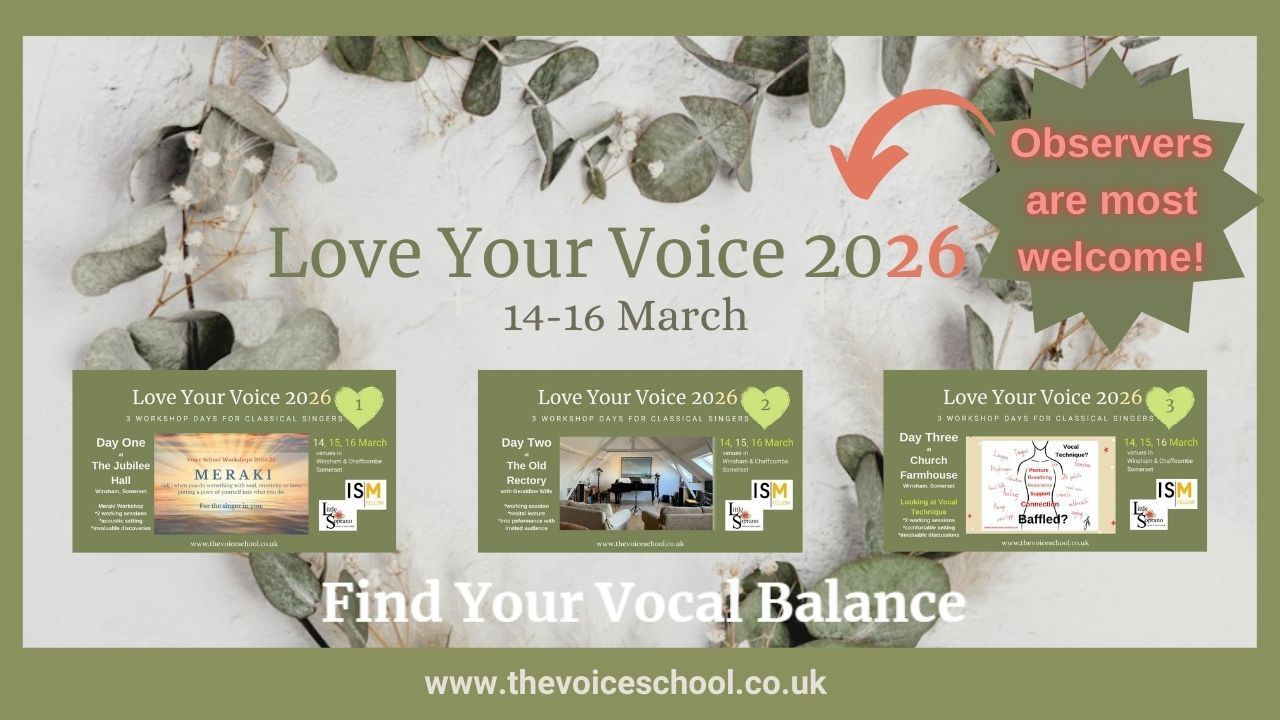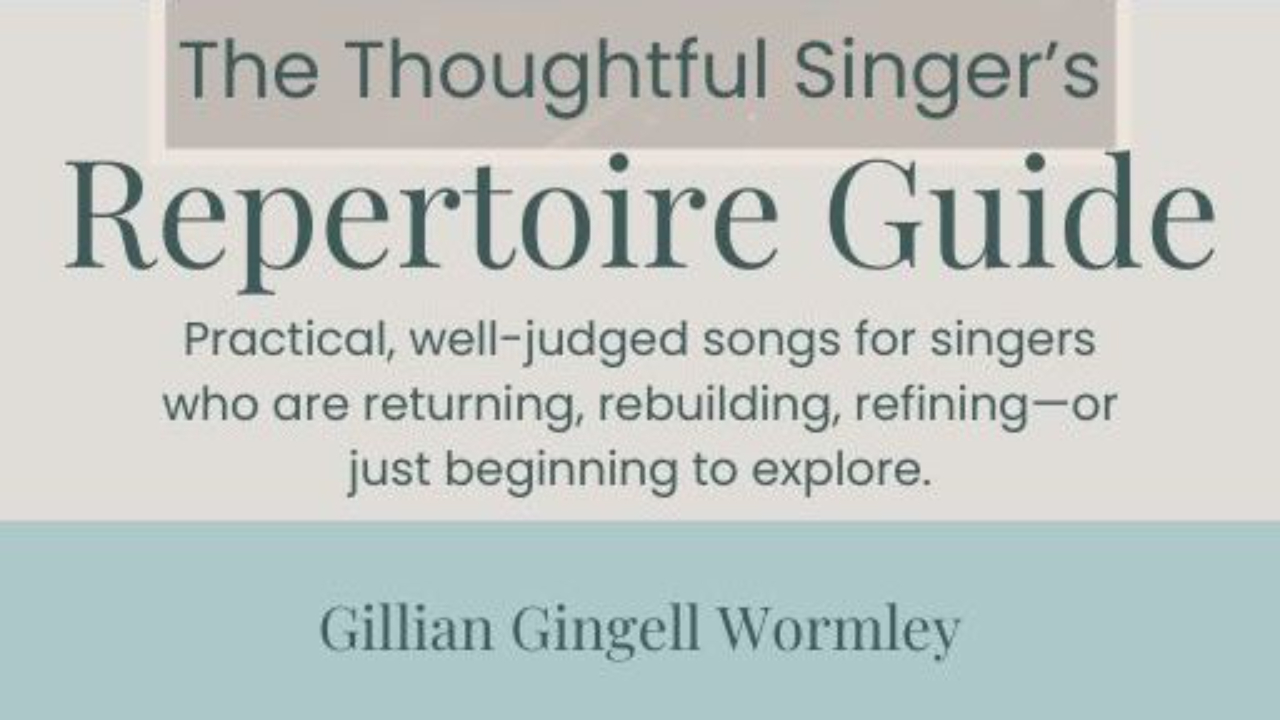A 2020 note to self: learn to get uncomfortable. NOTICE.

Singing imperfections and the OK Plateau.
It is Technique Tuesday. As a professional musician with a lifetime of technical vocal learning behind me and a trusty ongoing pursuit of future perfection in front of me, I regularly invest in telling my students to be at ease with where they are on their vocal journey. At ease, but not too comfy. To forgive their vocal imperfections BUT also be inquisitive, and questioning about the WHY. Be precise with how they invest their learning time when winkling out precious moments to focus on what they hope to achieve in their learning.

In 2013, I blogged a link to Joshua Foer’s wise words above and thereby also to a fabulous Brain Pickings post, by Maria Popova. It was called: The Psychology of Getting Unstuck: How to Overcome the “OK Plateau” of Performance & Personal Growth. In a nutshell, it seemed to set out everything so clearly and I at once recognised my own vocal-learning journey in there, one which I built over the years around ‘Life’ and all its uncontrollable haphazardness. It was hard to maintain - but my focus, my resolve was to unravel technical mysteries and imperfections. I was not content to just be OK with learning my craft. If you can relate at all, this is a great read.
In the 1960s, psychologists identified three stages that we pass through in the acquisition of new skills. We start in the “cognitive phase,” during which we’re intellectualizing the task, discovering new strategies to perform better, and making lots of mistakes. We’re consciously focusing on what we’re doing. Then we enter the “associative stage,” when we’re making fewer errors, and gradually getting better. Finally, we arrive at the “autonomous stage,” when we turn on autopilot and move the skill to the back of our proverbial mental filing cabinet and stop paying it conscious attention.
Here, Foer explains, we arrive at the OK Plateau - where there is the potential to actually stop learning because it feels like we have arrived at that comfortable spot. So, in conclusion and support of my Technique Tuesday info-graphic, I will continue to urge my students to contemplate every time they think to practice:
… expert musicians tend to focus on the parts that are hard, the parts they haven’t yet mastered. The way to get better at a skill is to force yourself to practice just beyond your limits.
Curious about singing basics? Let's get you started with the right learning tools.
Download my free need-to-know vocal essentials guide for singers, vocal technique principles simply explained.







